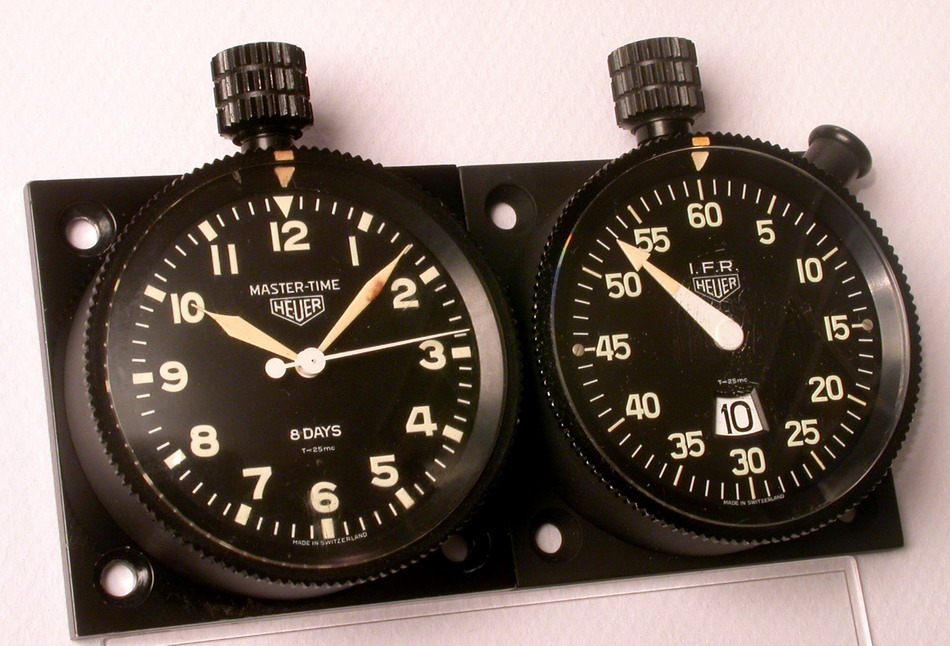Disclosure: I am both a watch enthusiast and a Pilot but on any note...
The answer to your question is generally no, but that varies by personal taste as well as personal choice. There are lots of threads on the various watch forums discussing this very topic here, here and here. The consensus is basically a few things. First off pilots no longer make the kind of money the once did and swiss watches have only shot up in price since say the 70's. If you are talking about an entry level professional pilot making in the very low 5 figures the chances they are going out and buying a $5,000+ watch is low. Now lets talk function. When you are in the cockpit a watch can be useful (provided you can read it). If your heading indicator fails you can use a watch and your turn coordinator to time your turns which can save your life in the clouds. I generally start my chronograph (omega speedmaster) when I take off, this gives me not only en route time but markers of the half hour blocks when I need to switch my tanks (on a piper warrior). For what its worth there is a clock in the plane as well as a timer so I don't need a watch but I enjoy wearing one. When I fly dead reckoning I carry an all mechanical Heuer Stop watch to time my legs. Again these things are in the plane but I find the hand held stop watch easier to use. Some fancy aviation watches provide flight computers on the bezels like breitlings but there is no way you are reading that in the air unless its really smooth up there.
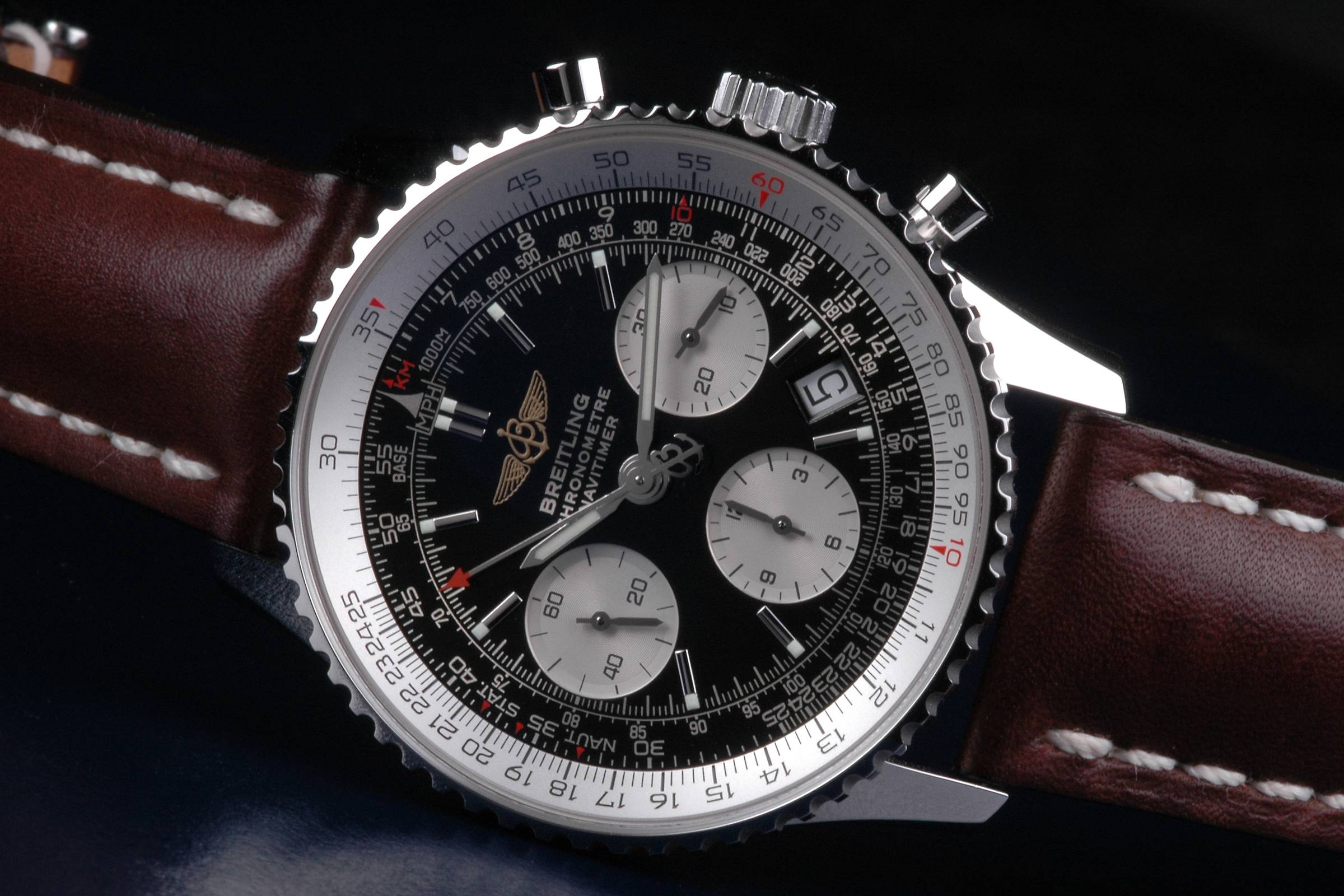
The consensus around the internet and from what I have seen is that commercial pilots generally wear digital stuff or nothing at all (most casio and the like). Military fighter pilots where GShock's or what ever is issued if any thing is even issued. Some pilots may wear Rolex-GMT's or the such but that seems to be those that either really like watches or were gifted it etc. However Pan Am had a long standing relationship with Rolex over the years. Pan Am pilots may have sported an albino GMT or a special Pan Am Daytona depending on the era. The GMT Master was even designed in partnership with Pan Am and issued to long haul pilots.
On a side note there is a group of pilots that ALWAYS wear fancy swiss watches. Since the early days of the space program Omega has been the watch maker of choice for NASA and the Speedmaster has been the watch of choice as seen here on Buzz Aldrin
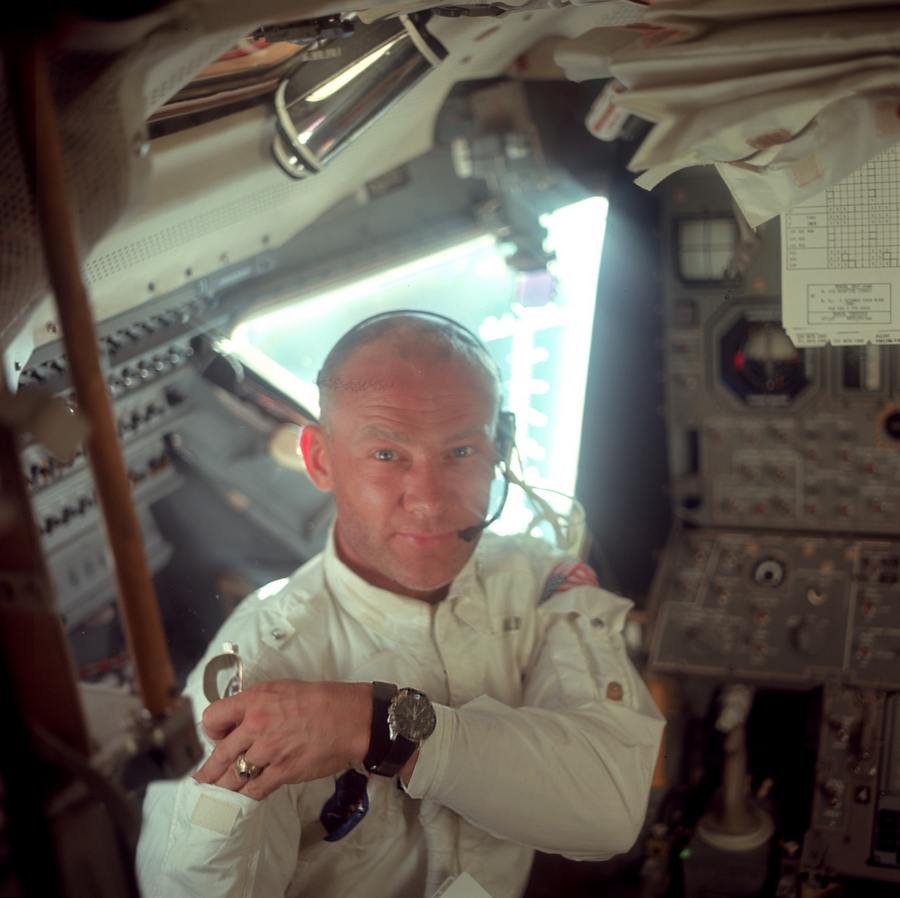
Some even say that the Speedmaster was used to time the engine burn on apollo 13 which may have in turn saved their lives. It is also reported that Neil Armstrongs Speedmaster Broke on the apollo 11 mission. Here is a comprehensive list of where all the watches reside now. The watches were worn on a NATO style velcro band that was a double wrap size so it could fit over the suits for EVA. The Speedmaster is still worn in space to this day however modern space suits have a flap covering it, making it hard to see in photos. The official Speedmasters (moon watches) are certified for maned space flight and stamped as such.
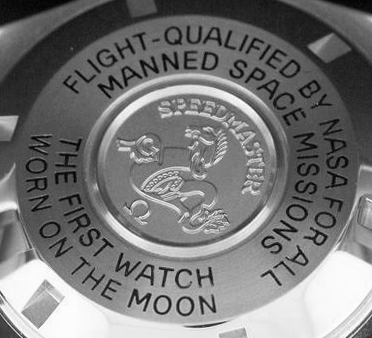
I would also like to expand on your statement
...which, for example, simply stops working if it is not moved for a few days
They do not stop working, the spring winds down and they will stop ticking however as soon as they are picked up again (and the rotor is spun if its automatic) they will start ticking again. That being said if you wear the watch every day, un like a digital that may die, a mechanical watch will tick perpetually until a component physically breaks.
On a bit of a tangent, some watch makers did make flight instruments (clocks) for aircraft over the years this is where much of the inspiration for the watches comes from. Elgin made a clock that was used in a few WW2 fighters,
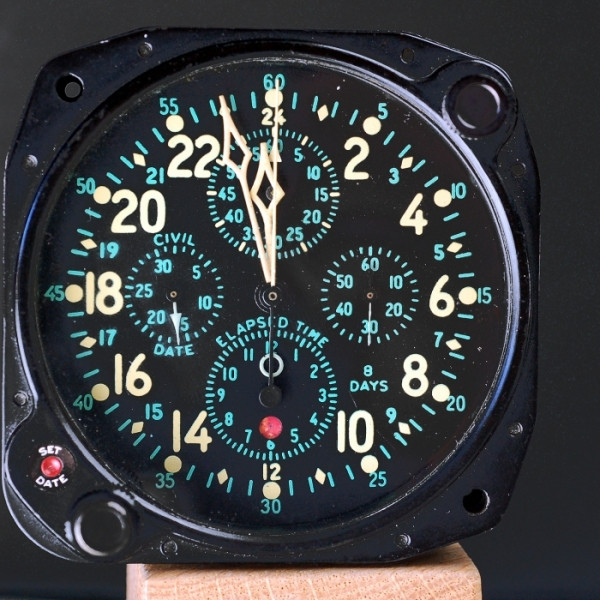
Heuer even had an IFR stop watch
